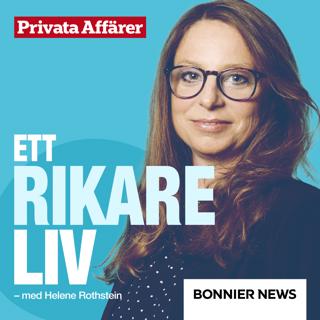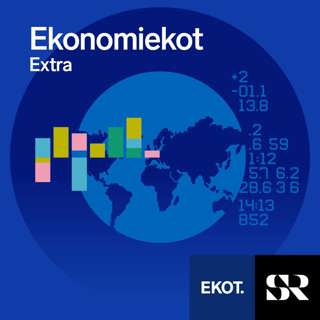
The New Fan Club: Creators, Fans, and the Power of Markets (& Crypto)
Today’s episode, part two in our two-part series on the Creator Economy, focuses on the new potential revenue streams and fan-engagement models opened up by emerging decentralized technology. It's a new type of fan club, driven by crypto networks and aiming to give creators more power in the commercial sphere. Zoran Basich of a16z talked to two guests deeply immersed in these topics. Kayvon Tehranian is the founder and CEO of Foundation Labs, a platform for buying and selling limited edition goods. Think of it as a crypto marketplace that creates new revenue streams for creators, and financial incentives for buyers. Before that he was head of product at cryptocurrencies marketplace Dharma Labs, and he has long worked on making crypto more accessible to the mainstream. Jesse Walden is a former a16z partner who recently launched his own fund, Variant, which focuses on what he calls the ownership economy enabled by crypto. He also previously cofounded the startup Mediachain, which was acquired by Spotify, and is a former music promoter and manager whose focus was on helping artists stay independent. Kayvon and Jesse explain how the emerging crypto models differ from previous attempts to create new revenue streams for artists, and about the role of speculation and hype in creator markets. They also debate whether these new markets will largely be driven by financial motives, or whether cultural factors will be equally powerful in determining the growth of creator markets. And they offer advice to creators interested in exploring this new world, including important practical guidance on expectations and timelines.
18 Sep 202033min

So You Want to Launch a Newsletter: Tips From Substack Writers
This episode, part one in a two-part series on the Creator Economy, explores the process and economics behind creating an independent newsletter. In this candid conversation, host Lauren Murrow talks with four Substack writers—an artist, a technologist, a journalist, and a clinical researcher-turned-psychedelics scholar—about how to find and foster an audience, the calculus behind going paid versus unpaid, the pressure to produce, and financial benchmarks for making a living from newsletter writing.The pandemic has prompted a reckoning within traditional media and, in parallel, a surge in the newsletter ecosystem. On Substack, readership and active writers both doubled from January through April. The newsletter hosting platform now has more than 100,000 paying subscribers.This episode reveals the behind-the-scenes experiences of four newsletter creators, all of whom launched roughly within the past year:Software engineer Lenny Rachitsky, most recently a growth product manager at Airbnb, whose tech-focused dispatch is called Lenny’s Newsletter.Artist and writer Edith Zimmerman, creator of the Drawing Links newsletter, which chronicles her life and musings through comic-style illustrations. Zach Haigney, an acupuncturist and researcher whose newsletter, The Trip Report, explores the science, policy, and business behind medicinal psychedelics.And Patrice Peck, a freelance journalist—previously a staff writer at BuzzFeed—whose newsletter, Coronavirus News for Black Folks, highlights the pandemic’s disproportionate impact on the black community.Listen to the end of the episode to hear more about Patrice, Zach, Edith, and Lenny's top newsletter recommendations:Patrice’s newsletter recs:The Intersection by Adriana LacyBeauty IRL by Darian Symone HarvinCarefree Black Girl by Zeba BlayMaybe Baby by Haley Nahman Zach’s newsletter recs:Stratechery by Ben ThompsonSinocism by Bill BishopA Media Operator by Jacob Cohen DonnellyOff the Chain by Anthony PomplianoThe Weekly Dish by Andrew Sullivan Edith’s newsletter recs:The Browser by Robert CottrellThe Ruffian by Ian LeslieRidgeline by Craig ModDearest by Monica McLaughlinWhy Is This Interesting? by Noah Brier and Colin Nagy Lenny’s newsletter recs:2PM by Webb Smith Li’s Newsletter by Li Jin Alex Danco’s Newsletter by Alex DancoTurner’s Blog by Turner NovakNext Big Thing by Nikhil Basu Trivedi Big Technology by Alex KantrowitzThe Profile by Polina MarinovaEverything by Nathan Baschez, Dan Shipper, Tiago Forte, and Adam KeeslingNot Boring by Packy McCormick Illustration: Edith Zimmerman
17 Sep 202034min
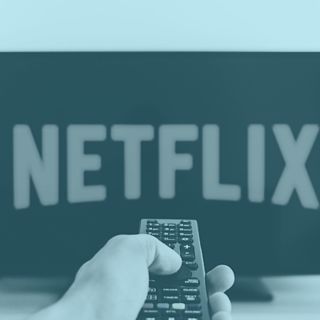
Designing a Culture of Reinvention
Since Netflix started in the late 90s as a DVD-by-mail rental service competing with Blockbuster, it has completely reinvented itself... twice – first, when it went from DVD rental to video streaming platform, and then again when it went from licensing to producing original content.But what does it take to create an organization capable of reinventing itself?In this episode, originally recorded for the Commonwealth Club of California, Netflix CEO and co-founder Reed Hasting talks about his new book "No Rules Rules: Netflix and the Culture of Reinvention" with a16z co-founder and fellow author Ben Horowitz, who also wrote a bestselling book about culture last year. During the conversation, Reed tells the story of Netflix's evolution and his management philosophy, including the hard lesson he learned about what happens when you optimize for efficiency at the expense of creative talent. He also explains why sometimes a more narrow market focus is better for growth and shares the tactics that have helped Netflix expand globally and translate a culture of innovation across different countries, from Japan to Brazil to America.
15 Sep 202042min

Heroes & Myths in Entrepreneurship -- Guy Raz
"I'm in a movie, but it's the wrong movie."For better or for worse, we tell the story of entrepreneurs as one of the mythical hero's journey: that's there's a call, a test (multiple tests!), a destination... But nothing truly follows such a clean, linear, storytelling arc. Stories of success and resilience are messy and full of "sleepless nights, anxiety-ridden fears, moments of real despair and failure", observes Guy Raz -- who is the host, co-creator, and editorial director of three NPR programs, including the popular podcast "How I Built This" -- and has a new book (coming out this week) on How I Built This: The Unexpected Paths to Success from the World's Most Inspiring Entrepreneurs.But in sharing these stories, are we also indulging in "failure porn"? Where do (and don't) debates about optimism vs. pessimism come in; does this really squelch the appetite for building? What happens when "unexpected paths" are actually things like a once-in-a-lifetime pandemic? Editor in chief (and showrunner of the a16z podcasts) Sonal Chokshi probes Raz on these questions and more, while also pulling the threads of how storytelling IS business -- whether it's a company or a community or a product or a movement. So what's the difference between "building buzz" and "engineering word of mouth"? And how do the stories we tell ourselves, and others, actually move things?Raz is also an entrepreneur with his own production company; has won numerous awards and accolades; co-created a podcast for kids (Wow In The World); and is hosting a music interview show for Spotify, not to mention his NPR shows. So what's his best interview tip? And how does his story also thread into this broader sea of stories, along with the story of the podcasting industry, and even the story (and history) of the Bay Area? This episode is for anyone wanting to figure out how to rewrite their own story... it's really for everyone.
12 Sep 202038min
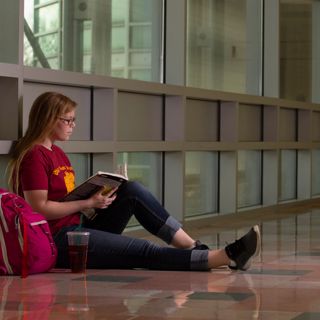
The Question of Education
Monopoly, oligopoly, cartel. All three of those words can describe the (not so) modern education system today, given the cost structures, economics, and accreditation capture -- in everything from who can and can't start a new university (when was the last time a significant change happened there anyway?!) to where government funding really goes to the student loan and debt crisis.Yet degrees do matter, just not for the reasons we think. So what are the tradeoffs -- when it comes to the "right" school, making money, and assessing skills objectively -- between what's been called "hard" (B.S.) and "soft" (B.A.) degrees? What's the best book on career advice, and what advice does Marc Andreessen -- who went to a public university, worked on a revolutionary project there, and started a company right after -- have for students (and others contemplating change in their careers)... and especially for those considering dropping out, delaying, or skipping college altogether?Andreessen shares his thoughts on the purpose, past and present of education (briefly touching on the impact of the pandemic as well) with Dylan Field, CEO of Figma, which is free for students and educators. The Q&A was recorded in August 2020 and originally appeared as a video in their "Back to School?" interview series; it was actually inspired by the question of taking a gap year and questions about whether or not to go back to school this year that came up in their Virtual Campus community of students from across the world. image: Lyndsy Rommel / Flickr
11 Sep 202058min
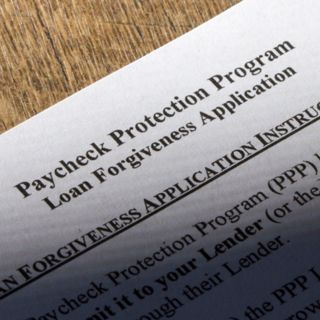
Pandemic Relief and Fraud: Willful Deceit or Design Defect?
This episode examines the potential for misuse and fraud among those applying for the Paycheck Protection Program (PPP)—and how fintech and software provide overlooked tools to stop it. On March 27th, the government enacted a $2.2 trillion dollar stimulus package called the CARES Act, the largest aid measure in history. The act provides more than $500 billion for the Paycheck Protection Program, or PPP, a low-interest, forgivable loan program designed to help small businesses and self-employed individuals retain workers and stay afloat during the pandemic. Since March, the Small Business Administration has approved billions of dollars in PPP loans. But it is also estimated that U.S. losses from coronavirus-related fraud and identity theft have reached almost $100 million. According to the New York Times, the Small Business Administration’s fraud hotline has received 42,000 reports about coronavirus-related cheating and misuse; by comparison, last year it had less than 800.To date, the Department of Justice has charged more than 40 cases of PPP-related schemes, from claiming non-existent employees or non-existent businesses to identity theft, kickback schemes, fake tax documents, and multi-state fraud rings. Most of those cases have alleged fraud of more than a $1 million. But what about the countless others that may be cheating taxpayers out of smaller—but not insignificant—sums? How does the government decide who should get money and who shouldn’t among millions of applications from businesses of all industries and sizes—and what role do banks play? How does the program then distribute that money quickly and accurately—or not, in many cases? And what tools are at our disposal to catch those who cheat the system? Host Lauren Murrow is joined by Bharat Ramamurti, the original member of the COVID-19 Congressional Oversight Commission, which is tasked with evaluating the impact of coronavirus relief loans; Naftali Harris, the CEO of SentiLink, a software company that builds technology to detect synthetic fraud; and a16z fintech general partner Alex Rampell.
4 Sep 202040min

Measuring & Managing Community Orgs, Developer Relations and Beyond
Okay, so we know community is important -- whether for developer relations for your product or other types of communities -- but how do we measure the success of community initiatives and even artifacts (like events or schwag), given how indirect and long-cycle so much of it is? How do we know we're even measuring the right things, and is there one key metric or KPI for measuring the health of a community? Where do "meta communities" or where does engaging key community leaders come in?And when it comes to developer relations specifically, where should devrel sit in an organization (product, sales, engineering)? Who should you hire first? How do you reconcile developer as customer vs. developer as community member? And what's the difference between evangelism and advocacy?Amir Shevat -- former VP of Product and Developer Experience at Twitch and former Director of Developer Relations at Slack who also previously worked at Google and Microsoft -- drew on his experiences to share insights and answers to these questions, as well as provides an overview of key concepts, followed by a Q&A with Mikeal Rogers, who works on Community Operations at Protocol Labs, and was formerly Community Manager of the Node.js foundation (and has shared insights on the changing culture and community of open source on a previous episode of the a16z Podcast).This episode is based on a conversation that took place at a portfolio workshop event from a couple years ago organized by former a16z crypto partner Jesse Walden, because crypto gives developers the ability to build on top of and extend any protocol or application in the space, and developer relations and community building is an important part of that being realized. You can find the latest on company building best practices for crypto at a16z Crypto Startup School and see other pieces in our ongoing community series at a16z.com/community.
30 Aug 202033min

Reining in Complexity: Data Science & Future of AI/ML Businesses
There is no spoon. Or rather, “There is no such thing as ‘data’, there’s just frozen models”, argues Peter Wang, the co-founder and CEO of Anaconda — who also created the PyData conferences and grew the early data science community there, while on the frontlines of trying to make Python useful for business analytics. He views both models and data as fluid, more like metaphysics than typical data management… Or perhaps it’s that when it comes to data, those with a physics background just better appreciate the mind-bending complexity and challenges of reining in the natural world, and therefore get the unique challenges of AI/ML development, observes a16z general partner Martin Casado — whose first job after college involved computational physics simulation and high-performance computing in Python at Lawrence Livermore National Laboratory. (Wang, meanwhile, graduated in physics.)But this not just a philosophical question — the answer has real implications for the margins, organizational structures, and building of AI/ML businesses. Especially as we’re in a tricky time of transition, where customers don’t even know what they’re asking for, yet are looking for AI/ML help or know it’s the future. So what does this all mean for the software value chain; for open source collaboration and commodification; and for the future of software businesses? After all, it’s not written in stone that “All information systems must be deconstructed into hardware, and software, and data” and that “software must have these margins”… Will there be a new type of company? image: Pawel Loj / Wikimedia Commons
21 Aug 202044min



















